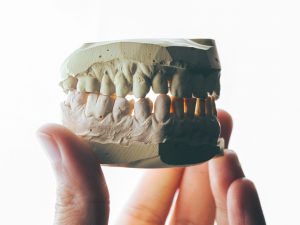
Periodontal disease is the deterioration of the gums surrounding the teeth. Periodontal diseases can be caused by trauma, poor oral hygiene, or lack of treatment. In severe cases, periodontal disease may even lead to periodontitis, which is an advanced stage of the disease.
Regardless of how you got periodontal disease or what stage it is, it’s important to understand how to reverse it so you can eliminate the risk of gum disease and oral cancer. This article will explain the basics of periodontal disease as well as what dental implants are and how they can be used to help recover tooth function.
Understanding Dental Implants
One of the most effective treatments for the aftereffects of periodontal disease is dental implants. Dental implants are artificial teeth or prosthetic teeth that are rooted in the jawbone just below the gums. When performed properly, dental implants can look and feel like real teeth. The metal “root” of a dental implant is typically made from either titanium or zirconium material. In addition to providing an attractive alternative to missing teeth, dental implants are also useful due to the ease of maintenance and their durability. Unlike dentures, dental implants don’t have to be removed for cleaning or any other purpose.
How Do You Know if You Have Periodontal Disease?
If you have gum disease or some level of periodontal disease, then you may already be aware of the importance of visiting a dentist regularly. A routine dental visit every six months will allow a dentist to spot any damage to your gums as well as track any progress that you may be making with your periodontal disease treatment.
Your periodontist in Pittsburgh can perform a variety of tests with x-rays and other technology to help you determine whether or not you need to see a dentist as often as you would like. Additionally, your periodontist can evaluate any potential tooth replacement choices for you and can recommend a particular prosthetic tooth or teeth implant that will best fit your mouth.
Periodontist vs. General Dentist: What’s the Difference?
A periodontist is also a medical professional that treats gum disease along with other health problems such as diabetes, heart disease and stroke. It is important to note that not all dental professionals fall under this specialty.
Although many people think of a periodontist as a dental health professional who deals with tooth decay, gum disease and bone loss, these professionals are also capable of performing procedures that address other health concerns as well. Many of these physicians specialize in treating patients who have diabetes, heart disease, and strokes. Others work on dental implants and many work on a national level, to educate the public about periodontics.
The Seriousness of Periodontal Care
It is important to understand that periodontal disease is not a mild form of gum disease, nor is it simply a matter of brushing your teeth a few minutes daily. If left untreated, periodontal disease can lead to very serious conditions such as infection, abscess, bone loss, and even death.
This is why it is imperative that you find a qualified provider to provide you with all of your periodontal procedures and dental services. When seeking a provider, look for someone who is board certified and has experience treating all types of patients with all different types of oral health problems. It is also a good idea to find a periodontist who has experience working with children and adolescents as well as adults.
Periodontal disease deals with plaque, tartar and calculus, which are the result of food particles and plaque building up around teeth. If these types of deposits do not receive proper treatment, they can begin to irritate the gums. In turn, this causes the patient to experience bleeding gums that can eventually lead to peri-implantitis and periodontitis. Peri-implantitis is an infection of the gums around a dental implant. On the other hand, periodontitis is the inflammation of gums that can affect any part of the mouth. With both conditions, tooth extraction and root canal therapy are commonly used to treat periodontal disease.
Periodontal Treatment in Pittsburgh
The treatment methods for periodontal disease will vary depending on the severity of the condition, as well as the location of the gum tissue infected. If the disease occurs in a localized area, root canal therapy and dental implants can be used to remove diseased tissues and restore function by way of a synthetic tooth. However, if the problem is located throughout the mouth, periodontal disease might require surgery, dental implants and periodontal drugs to remove the bacteria and plaque from the mouth.
At Pittsburgh Periodontist, we specialize in same-day implant placement, which means you don’t have to wait for your new dental implants. In as little time as an hour, you can return home with fully functioning teeth or dental implants. We also specialize in a variety of services to give you the smile you’ve always wanted.
If you’d like to learn more about dental implants or the other services provided in our periodontist office, call us at (412) 787-7555. You can also contact us online.
